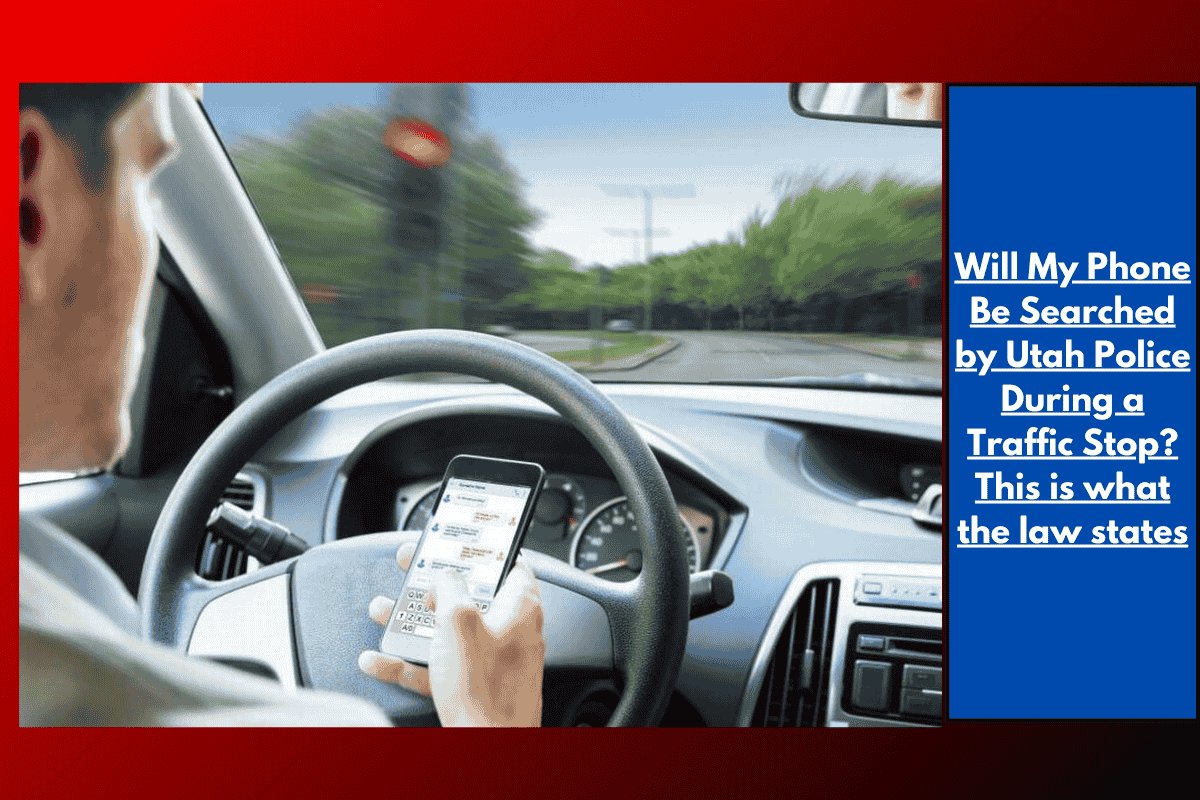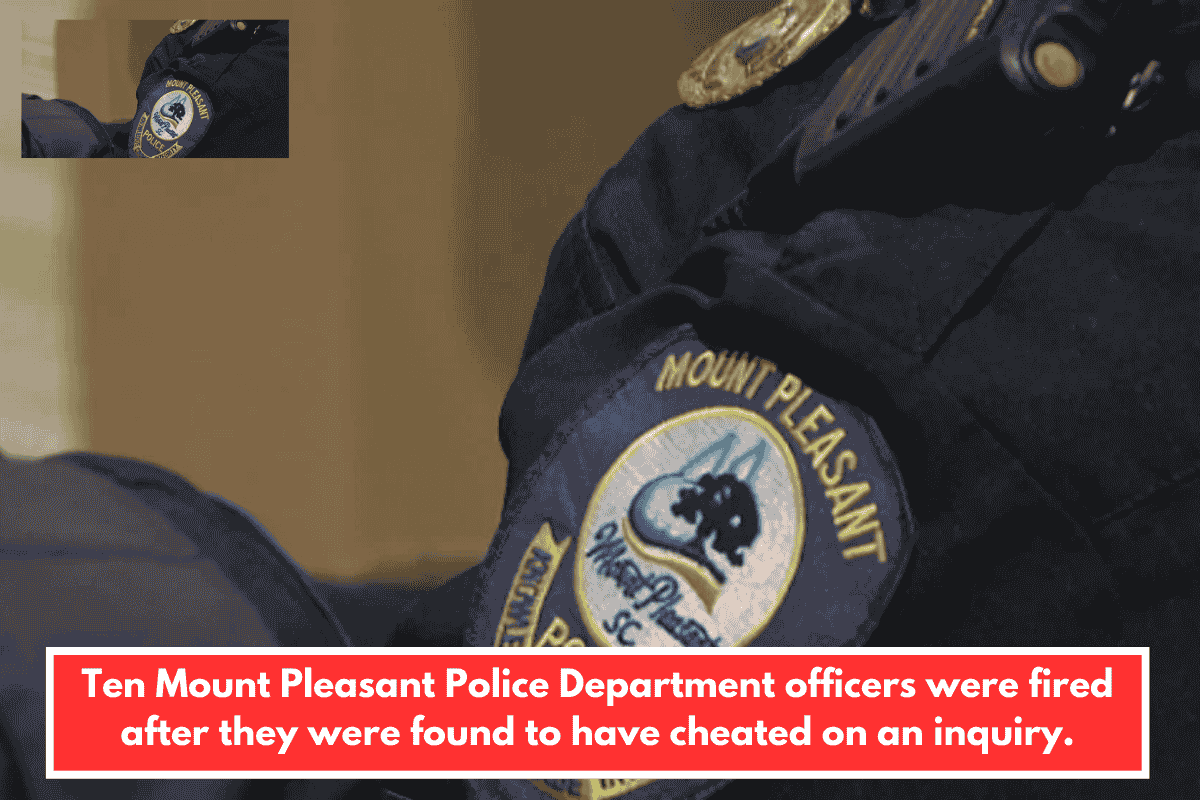During a traffic stop, many drivers might wonder whether their phone can be searched by police in Utah. With the increasing use of smartphones for personal and professional purposes, the question of whether police can access the data on a phone during a routine traffic stop has become more relevant than ever. The short answer is that the police generally cannot search your phone without your consent or a warrant, but there are some exceptions. In this article, we’ll take a closer look at Utah’s laws regarding phone searches during traffic stops and what your rights are if you’re pulled over.
Can Utah Police Search My Phone During a Traffic Stop?
Under both federal and state law, police cannot search your phone simply because you are pulled over during a traffic stop. In most cases, the police need probable cause, your consent, or a warrant to search your phone. The Fourth Amendment of the U.S. Constitution protects you from unreasonable searches and seizures, and this extends to your smartphone. However, there are specific situations where a phone search might be allowed, and understanding these exceptions is important.
Consent to Search Your Phone
One of the most important factors to understand is that police can search your phone if you give consent. If a police officer asks to search your phone and you agree, they can access the information on your phone without a warrant. It’s important to remember that you have the right to refuse consent to a search, and you can do so politely.
For example, if an officer asks to look through your phone for any reason, you can simply say, “I do not consent to a search.” Refusing to consent cannot be used against you in court, and it does not give the officer grounds to detain you longer than necessary for the traffic stop.
Search Incident to Arrest
If you are arrested during a traffic stop, the police may have the right to search your phone as part of a search incident to arrest. However, this exception is more limited than it may initially seem.
Under the Riley v. California decision by the U.S. Supreme Court in 2014, police are not allowed to search the contents of your phone without a warrant, even after an arrest. The Court ruled that smartphones hold vast amounts of personal information, and the privacy interest in that data outweighs the need for immediate access to the phone without judicial oversight.
In practice, if you are arrested during a traffic stop, the police may seize your phone but would need a warrant to search the contents. In certain emergency situations, such as when there is a clear threat to public safety, police may be able to search a phone without a warrant, but these situations are rare and specific.
Probable Cause and Warrant
If police have probable cause to believe that your phone contains evidence of a crime, they may be able to apply for a search warrant to search your phone. For example, if you are pulled over for a suspected DUI and the officer believes that your phone contains evidence of illegal activity (like texting while driving or involvement in a crime), they may seek a warrant to search your phone.
Once the police have a warrant, they can legally search your phone for specific evidence related to the crime being investigated. It’s important to note that probable cause must be based on facts and circumstances that would lead a reasonable person to believe that a crime has occurred.
Plain View Doctrine
In some cases, police may seize your phone if it is in plain view during a traffic stop. For example, if the police notice your phone is on the passenger seat with a suspicious message or visible evidence of a crime, this could give them the grounds to seize the phone. However, just seeing a phone in plain view is not enough for the police to search its contents. They would still need either your consent, probable cause, or a warrant to actually access the information stored on the device.
Emergencies and Exigent Circumstances
In emergency or exigent circumstances, law enforcement officers may be able to bypass the need for a warrant to search your phone. This could include situations where there is an imminent threat to public safety or the risk of evidence being destroyed. For instance, if the police believe that your phone contains evidence of a crime that is about to be destroyed or that the phone is linked to a current emergency (like a kidnapping or an active crime scene), they may search it without a warrant.
These situations are rare, and courts typically hold that police cannot search your phone without a warrant unless there is a compelling reason related to immediate public safety.
What to Do if Police Ask to Search Your Phone
If a Utah police officer asks to search your phone during a traffic stop, it’s crucial to know your rights and handle the situation calmly. Here’s what you can do:
Stay Calm: Always remain calm and polite when interacting with law enforcement.
Ask if You Are Free to Go: If you are not being detained or arrested, you can ask if you are free to leave.
Refuse Consent: Politely tell the officer that you do not consent to a search. You can say something like, “I do not consent to a search of my phone.”
Know When You Are Being Arrested: If the police arrest you, they may seize your phone, but they cannot search it without a warrant, unless there are exigent circumstances.
If you feel that your rights have been violated, you can ask to speak with a lawyer or file a complaint with the police department.
In Utah, police cannot search your phone during a traffic stop without your consent, a warrant, or a legal exception like probable cause or exigent circumstances. The Fourth Amendment protects your privacy, and recent court decisions, like Riley v. California, have reinforced the need for police to obtain a warrant before searching the contents of your phone. However, if you’re arrested or if there’s a clear emergency, there are exceptions that might allow the police to access your phone. Always remember that you have the right to refuse consent to a search, and if you feel your rights have been violated, consult with an attorney.
SOURCES
[1] https://www.utahcriminallaw.net/can-the-utah-police-search-your-phone-without-a-warrant/
[2] https://le.utah.gov/Session/2025/bills/introduced/HB0273.pdf
[3] https://www.utahdefenseattorneys.org/police-prosecutors-2025
[4] https://le.utah.gov/~2025/bills/static/HB0273.html
[5] https://www.deseret.com/opinion/2024/1/10/24032032/utah-cellphone-password-privacy-law-ruling/














